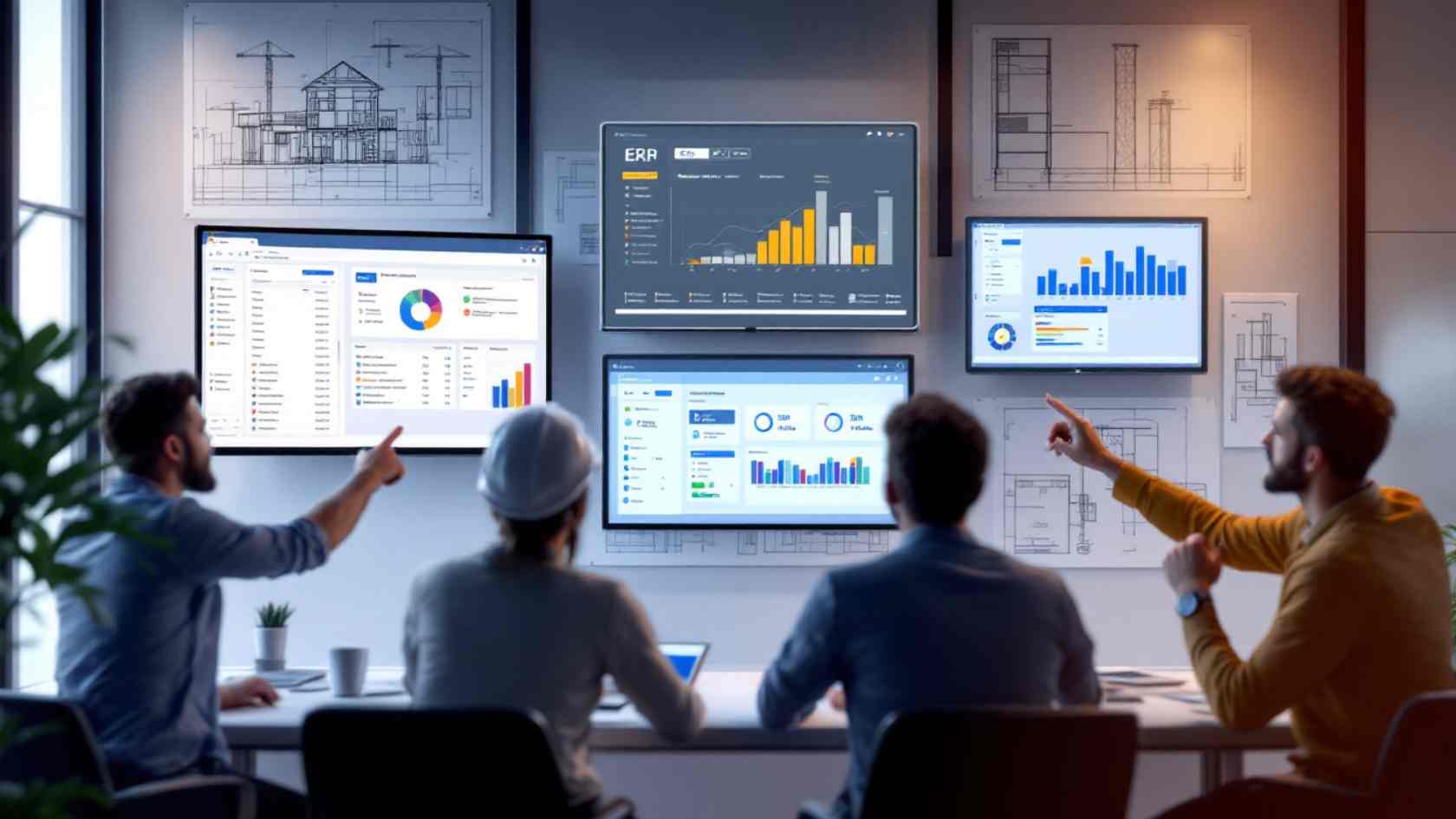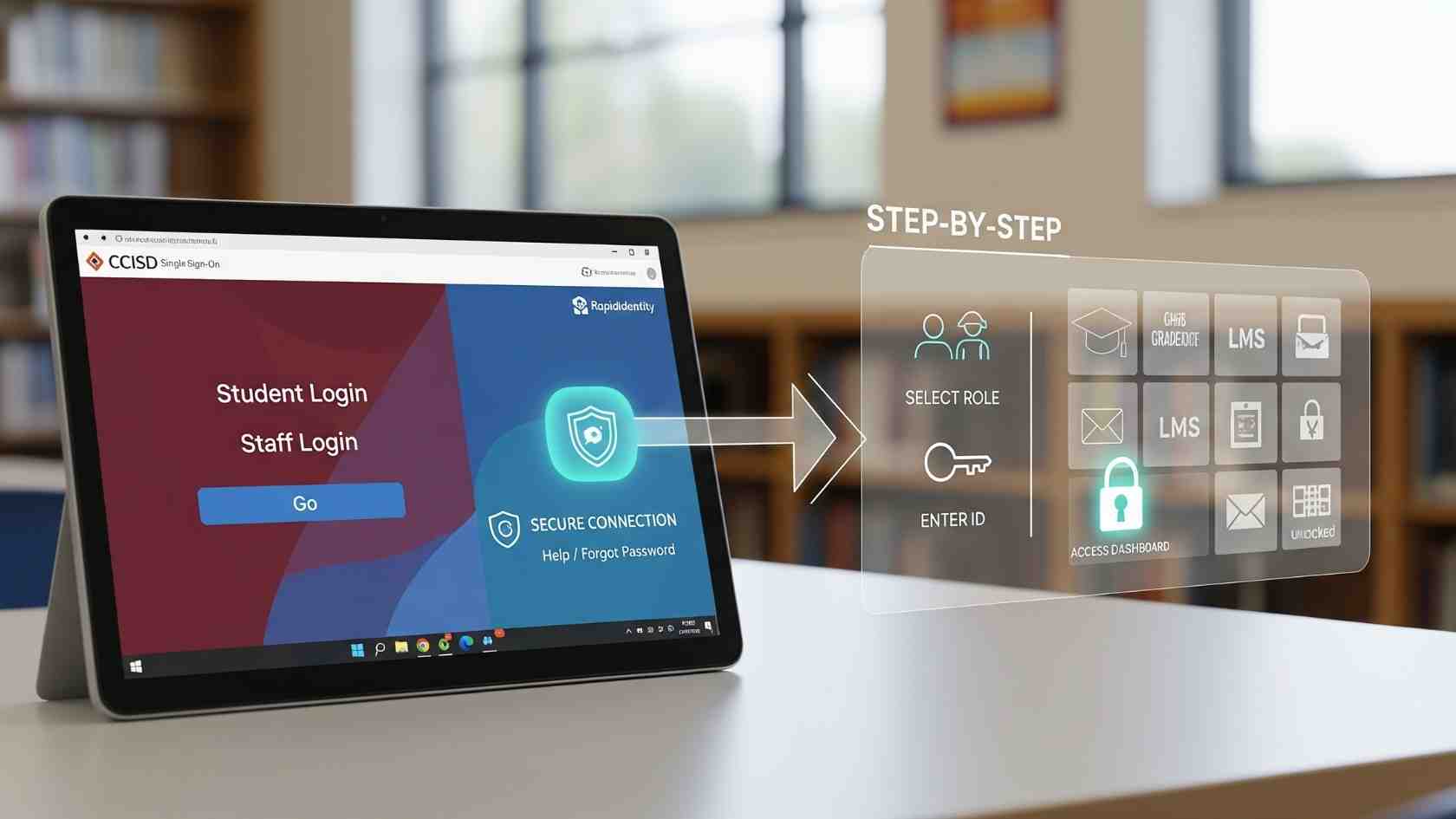The construction industry is complex , dynamic, and often unpredictable. Managing large-scale construction operations becomes challenging due to project deadlines, material price fluctuations, labor shortages, and compliance requirements. Companies use construction ERP software as a competitive advantage to enhance their operational efficiency and productivity.
A construction ERP system unites all company departments through a centralized platform, including finance, project management, procurement, HR , and more. Generic ERP systems differ from construction-specific software because they provide customized solutions for construction businesses to handle unique industry challenges, thus delivering precise control over complex projects.
Why ERP Matters in Construction
The construction industry drives substantial global economic growth , representing more than 13% of GDP according to McKinsey & Company, despite remaining a minimally digitalized sector. The industry faces challenges because it uses fragmented systems, manual operations, and separate communication channels. The construction industry achieves maximum value through ERP solutions designed for its needs.

A construction company can achieve operational structure and real-time visibility across all its operations through a specialized ERP system implementation. Through its system, the stakeholders have access to one unified source of information for managing tasks , starting from bidding.
A construction ERP system was designed to integrate all departments within a company, including finance, project management, procurement, HR, and more, into a centralized platform. The construction industry has its own challenges that generic ERP systems do not address. ERP software for the construction industry is designed to address those challenges and provide the solutions that will help bring clarity and control to the most complex projects.
What Makes ERP Software for the Construction Industry Unique?
- Unlike traditional ERPs in retail or manufacturing, construction ERPs include modules suited explicitly for project-based work. This includes project scheduling, job costing, subcontractor management, contract administration, equipment tracking, and more.Some of the key differences include:
- Project-driven structure: Construction ERPs are organized on cost centers by project, which helps track the budget and progress of the project.
- Real-time field collaboration: On-site workers and managers can update project data via mobile interfaces.
- Document control and compliance: Managing permits, drawings, contracts, and safety documentation becomes easier and more organized.
Key Features of ERP for Construction

While feature sets can vary by vendor, the best ERP software for construction industry use cases generally includes the following capabilities:
1. Project Management
At the heart of every construction ERP is project management. It enables real-time scheduling, tracking, and communication across tasks and teams. The users can assign responsibilities, monitor delays, allocate resources, and flag potential risks early.
2. Financial Management and Job Costing
Accurate budget forecasting and cost tracking are vital. ERP tools can manage everything from accounts payable and receivable to payroll and general ledger. With integrated job costing, companies can measure actual and estimated costs in real time, improving forecasting accuracy.
3. Procurement and Inventory Management
Efficient material procurement is critical in construction. An ERP system helps automate purchasing workflows, manage vendor relationships, and monitor material availability across projects. It reduces the risk of delays due to shortages or overstocking.
4. Human Resource and Labor Management
With a scattered and often temporary workforce, construction companies need robust HR tools. ERP platforms track certifications, availability, and timekeeping. This ensures compliance with labor laws and helps control costs by aligning workforce supply with project needs.
5. Document and Contract Management
Construction involves mountains of documentation—from drawings and permits to contracts and invoices. ERP systems store and manage these documents centrally, reducing risk and ensuring version control. Workflow automation also accelerates approvals and contract execution.
6. Equipment and Asset Management
Heavy equipment is a significant investment for construction firms. ERP solutions help track usage, maintenance schedules, and asset lifecycles. This minimizes downtime and improves return on investment.
Key Benefits of Using ERP in Construction

Adopting ERP software for construction industry operations leads to measurable improvements across several areas:
1. Improved Operational Efficiency
Manual workflows often lead to miscommunication and delays. ERP streamlines operations, automates routine tasks, and ensures all departments work from a unified platform. According to a 2023 report by Statista, companies using construction ERP systems reported an average 27% reduction in project delays.
2. Real-Time Visibility
Project stakeholders receive access to real-time project status information , budget tracking , and risk indicator updates through the dashboard and reporting tools. Such systems enable faster decision-making and rapid response capabilities when project problems occur.
3. Better Cost Control
Job costing and budget tracking within integrated systems enable project managers to gain better control over their expenses. The project avoids cost overruns because variance identification allows prompt correction before problems escalate.
4. Enhanced Collaboration
Through ERP platforms, different departments and job site teams achieve seamless connectivity. Every team member, including engineers, architects, and subcontractors, maintains access to current information. The system minimizes mistakes that stem from using outdated plans or communication breakdowns.
5. Regulatory Compliance
Construction operations must meet both local and international regulatory standards for success. ERP systems enable organizations to keep accurate documentation , supporting inspections , safety training , and environmental compliance requirements. Automated reminders serve to prevent organizations from facing non-compliance penalties.
6. Scalable Growth
The growth of ERP systems happens proportionally to the number of projects under management, whether you begin with 10 or expand to 100. Construction companies that grow in size find that centralized data and workflow systems become more vital for achieving quality control and maintaining consistency.
Real-World Examples
Multiple prominent companies have deployed construction-specific ERP solutions, bringing them substantial success.
-
- Turner Construction implemented cloud-based ERP technology, merging procurement management with project management systems to achieve better vendor collaboration. Implementing cloud-based ERP by Turner Construction accelerated their business cycle times and enhanced vendor partnership effectiveness.
- Bechtel selected Oracle’s construction-specific ERP solution to improve the efficiency of its extensive infrastructure project management operations.
- Kiewit Corporation uses its highly customized ERP system to track costs across all its infrastructure project operations because it operates as a Fortune 500 contractor. Kiewit processes billions of dollars in revenue through its advanced system while minimizing overhead expenses.
Choosing the Right ERP Software for Construction Industry

Multiple solutions exist in the market, so selecting an appropriate ERP solution becomes complex. Some of the top players include:
- Oracle Construction and Engineering Cloud
- SAP for Engineering, Construction & Operations
- Procore
- Viewpoint (Trimble)
- CMiC
Companies should evaluate their ERP options by examining these crucial factors:
- Industry-specific functionality
- Mobile accessibility
- The platform must link with tools like BIM, CAD, and payroll software.
- Customization capabilities
- Support and training services
- Cloud vs. on-premise deployment
A successful implementation depends heavily on selecting a strong partner and developing a comprehensive deployment strategy.
Challenges in Implementing ERP
Implementing an ERP system for construction companies presents various obstacles despite its advantages. The most common hurdles include:
- High upfront cost: Initial investments can be substantial, particularly for customized solutions.
- Resistance to change: Employees may hesitate to shift from familiar manual processes.
- Lengthy implementation: Rollouts can take months, depending on company size and complexity.
- Data migration: Integrating multiple legacy systems with spreadsheets into one platform proves time-consuming and error-prone.
Implementing challenges can be reduced through effective leadership, proper training, and planned deployment steps.
The Future of ERP in Construction
ERP for construction experiences rapid evolution because digital transformation continues to transform industries. The market shows increasing interest in these emerging trends:
- AI and predictive analytics for risk management and resource planning
- IoT integrations for real-time equipment and site monitoring
- Cloud-first platforms enabling remote work and mobile access
- Modular ERPs that allow companies to start small and scale gradually
The Deloitte survey shows that construction companies that use advanced digital tools , including ERP systems, achieve on-time project delivery and budget compliance at a rate of 50%.
Final Thoughts
Construction now requires data management, wise decision-making, and digital connectivity beyond traditional building techniques. Construction ERP software has become mandatory for companies seeking to grow and compete in today’s demanding market.
ERP software for the construction industry transforms operational methods by delivering improved communication, better cost control, and project delivery capabilities. The selection of suitable ERP software combined with proper implementation will help companies achieve long-term success and digital resilience in our modern digital world.










